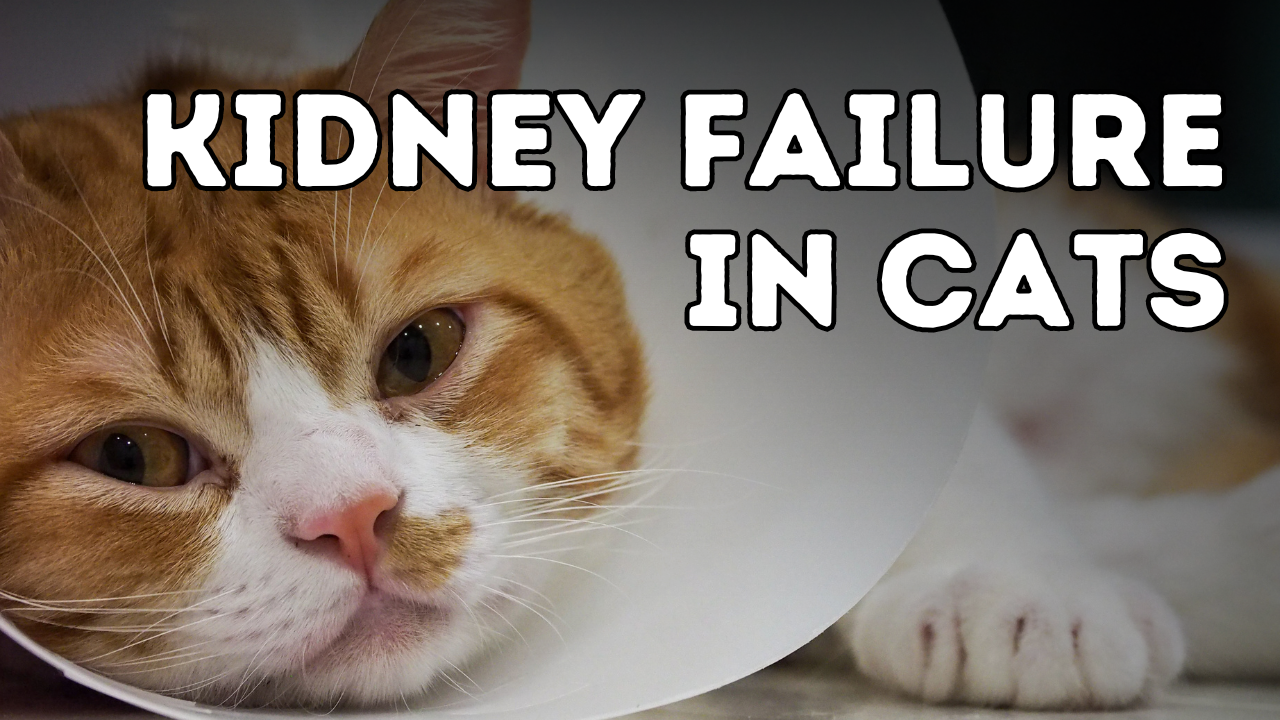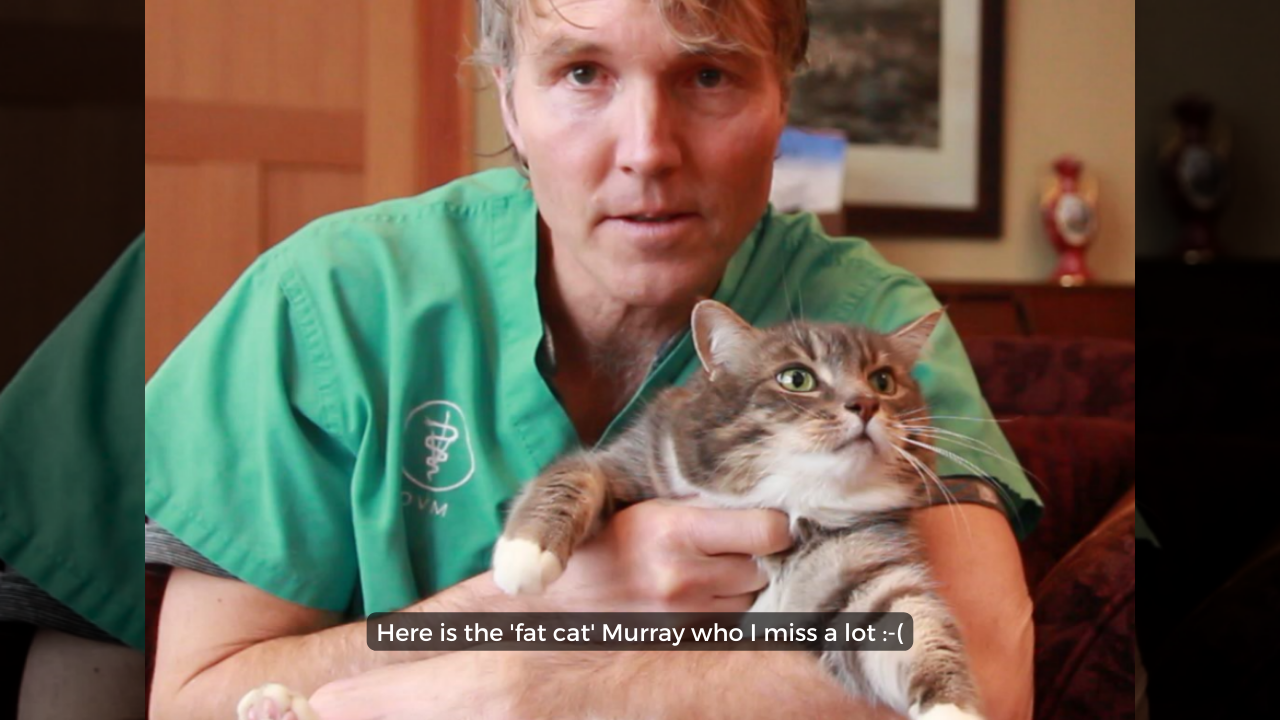The Truth About Protein and Kidney Failure in Cats

Your cat has a good chance of developing Kidney disease as this can affect over 1/3 of ALL cats past the age of 10.
The causes… we initially said it was due to age, now one of the concerns has been focused on vaccines producing autoantibodies attacking the kidney, leading to CRF (Chronic Renal Failure).
So yes, another case for less vaccines.
BUT if you have a cat with early signs of Kidney disease, or are just hoping to avoid it, can anything help?
Some cat specialists strongly believe that lowering the phosphorus in the diet may help. One way to do this is via adding in some type of phosphorus binder, such as calcium.
Our supplement ULTIMATE Feline has additional calcium, but no added phosphorus, so it may help.
Click Here to get your bottle Dr Jones’ Ultimate Feline Health Formula


Kidney Failure in Cats: A Crucial Focus on Diet and Care
As a veterinarian, I’m often approached by concerned pet owners about the best course of action for managing kidney failure in cats. It’s a condition that can be daunting, but understanding the right dietary and care approaches can make a significant difference.
Understanding the Signs of Kidney Failure
Observing your cat for symptoms is crucial. You may notice increased thirst and more frequent urination, or that your cat is losing weight, particularly muscle mass. This muscle loss is due to protein leakage as the kidneys deteriorate. In advanced stages, weakness from anemia may occur.
Common Causes
Kidney failure can lead to decreased appetite from toxin buildup in the bloodstream. Severe cases might see your cat becoming dehydrated and refusing food altogether. Additionally, kidney disease can cause elevated blood pressure, possibly affecting your cat’s eyesight.
The Myth About Protein in a Cat’s Diet
Many veterinarians recommend a low-protein diet for cats with kidney failure. However, recent insights from feline specialists suggest that protein restriction isn’t necessary for preventing further kidney damage. Instead, maintaining normal protein levels while managing phosphorus intake is key.
Effective Solutions for Managing Kidney Failure
Hydration is Key
The most crucial step in managing renal failure is ensuring your cat stays hydrated. Always provide fresh water and consider switching to canned food to increase fluid intake. I also recommend learning to administer subcutaneous fluids to help flush out toxins. You can find a tutorial on this process on my YouTube channel.
Probiotics for Toxin Management
Azodyl, a natural probiotic, can significantly aid in metabolizing and eliminating uremic toxins through the bowel, thus slowing their buildup in the bloodstream. The recommended dosage of Azodyl is one capsule per 10 pounds of body weight daily, up to a maximum of four capsules.
Managing Phosphorus Intake
Phosphorus is a mineral that accelerates kidney damage. In the early stages of kidney disease, it’s crucial to feed a low-phosphorus diet and use phosphorus binders. Fish, generally high in phosphorus, should be avoided.

Utilizing Phosphorus Binders
Aluminum Hydroxide (ALOH) is an effective phosphorus binder that is both odorless and tasteless, easily mixed into food. The recommended dosage is ¼ teaspoon per 10 pounds of body weight daily, administered with food.
Additional Supplements
Calcium Carbonate, like Tums, can also help manage high phosphorus levels, which exacerbate symptoms. Safe and effective, the dose for Calcium Carbonate is ¼ tablet (650 mg) per 10 pounds of body weight twice daily.
Antacid for Comfort
Famotidine (Pepcid), an over-the-counter antacid, is safe for cats and helps alleviate discomfort. The typical dose is ¼ tablet (2.5 mg) per 10 pounds of body weight, administered twice daily.
Natural Remedies
Slippery Elm is a natural remedy that has proven effective in managing stomach upset associated with kidney failure. A typical dose is one 400mg capsule per day, sprinkled over food.
Caring for a cat with kidney failure involves several key strategies: maintaining hydration, managing diet, and providing supportive care. Remember, the focus should be on phosphorus reduction, not necessarily protein reduction.
P.S. Takeaways for Managing Kidney Failure
Ensure adequate hydration, avoid high-phosphorus foods like fish, use antacids to stimulate appetite, and bind phosphorus to slow kidney damage. Our ULTIMATE Feline Health Formula can further assist by binding phosphorus without adding any, thus helping to lower the risk of kidney disease progression.

Hi. Thanks for all of the help you have given all of us for our pets!
In the article above about kidneys, I’m surprised you suggested any type of aluminum, since it’s not great to have our bodies, right? I haven’t finished reading the article yet, but somewhere you mentioned it might have been a video, crushed eggshells and their food to neutralize phosphorus.
Again, thank you for all you do! God bless you!
Hi,
It’s great to see people who prioritize pets’ well-being over commercial interests.
I read your article and searched online, but I couldn’t find the answer to my question.
We feed our cats chicken breast. My wife boils it without oil or salt—just plain boiling—and we give that to them. We also provide commercial cat food.
My question is: can we feed them only chicken breast? We have four cats (one of whom recently passed away). One of our cats, a female, only eats commercial cat food. We feed her P…NA. The rest of them (all male) are fed only chicken breast.
Are we doing anything wrong?
You may reply through here as well.
Thanks,
You’re doing a great job caring for your pets—keep up the good work! Here are a few tips you can try:
https://veterinarysecrets.com/?s=Cat%20diet
Nothinlg wrong with feeding chicken (not only breast, though, and roasting is better thsn boiling as it keeps more of the nutrients and flavour in tbe meat) BUT ONLY AS A COMPLEMENTARY FOOD. It is NOT a complete food with all of the nutrients that a cat needs. There’s a reason commercial cat food was developed, apart from the purely connercial reason i mean! And these days really good quality conmercial catfoods are not difficult to find.
I am ver interest in learning more about this: The Myth About Protein in a Cat’s Diet, and in particular, “recent insights from feline specialists suggest that protein restriction isn’t necessary for preventing further kidney damage.”
Could you please provide source materials for the recent insights from feline specialists?
Thanks so much,
Sunny